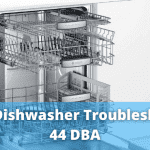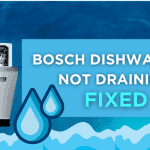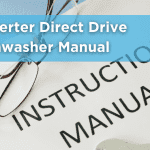Table of Contents
Ever wondered, “Why isn’t my AC cooling below 75 or 80 degrees?” You and thousands of others are scratching their heads, wiping their foreheads, and asking the same question. We all dream of cold air when we step inside on a hot day, a safe haven from the heat. So when our homes feel more like humidity than safety, it’s a cause for concern. But don’t let it sweat you (take it as a joke).
While you’re giving yourself some air and thinking of calling the technician, we’re about to provide you with some insights that might help you understand and resolve the root of the issue. Ready to delve into the detailed world of the AC? Let’s go and break it down.
| Issue | Quick Solution |
|---|---|
| 1. Dirty/Clogged Air Filter | Replace the air filter |
| 2. Blocked Condenser | Clear debris around the condenser |
| 3. Refrigerant Leak | Call a technician for inspection |
| 4. Undersized AC | Consult a technician for size recommendation |
| 5. Leaky Ductwork | Have ductwork inspected and sealed |
| 6. Aging AC Unit | Consider upgrading if older than 10 years |
| 7. Dead Thermostat Batteries | Replace batteries or test the thermostat |
| 8. Clogged Drain Line | Flush the drain line with a vinegar solution |
| 9. Tripped Circuit Breaker | Reset any tripped breakers |
| 10. Improper AC Unit Placement | Ensure units aren’t near heat sources |
| 11. Infrequent Maintenance | Schedule regular AC check-ups |
Understanding Outdoor Temperatures and Your AC
In places like Sarasota, if it’s hotter than 92 degrees outside, it’s not just your AC’s fault. Sarasota often reaches this “design temperature” in summer. Even the best AC might find it hard to keep things chilly inside on such super hot days.
Common AC Problems and Their Solutions:
1. Dirty Air Filter
Why it matters: Your air filter is like the lungs of your AC system. Just as we would struggle to breathe through a stuffy, dirt-filled scarf, your AC grapples with a dirty filter. The prime function of this filter is to keep out pollutants, dust, and allergens. But, like any guard on duty, it collects the things it’s blocking. And when it gets clogged, your AC has to work overtime, often without delivering the cool breeze you desire.
Signs:
- The air feels less chilly than usual.
- You might notice a slight musty or burnt smell due to reduced airflow.
- There’s an unexpected hike in your electricity bill, even if your AC usage remains constant.
Solution:
- Regular Check-ups: Make it a habit to inspect your air filter every month. It might get dirtier with the changing seasons, sometimes more than others.
- Replacement: If you see it’s coated with dust and debris, it’s time to switch it out. Remember, a clean filter cools your home faster and keeps the indoor air fresh and healthy.
- Opt for Quality: Not all filters are created equal. Depending on where you live and the air quality in your area, consider investing in a higher-quality filter that captures more and finer particles.
Quick Tip: Set a monthly reminder on your phone or calendar. That way, you won’t forget to check and, if necessary, replace your filter, ensuring a breezier, cooler home.
2. Blocked Condenser
Why it matters: Your condenser helps let out heat. If something’s blocking it, your room gets hotter.
Solution:
- Look around the condenser. Clear away leaves or plants.
- Make sure there’s open space around it to breathe.
3. Refrigerant Leaks
Why it matters: Think of refrigerant as the “cool juice” for your AC. If it leaks, things won’t get cold.
Solution:
- Look for ice or frost on the pipes.
- Hear a hissing sound? It could be a leak.
- Call a repair person if you spot these signs.
4. AC Too Small for the Room
Why it matters: A tiny fan can’t cool a big hall. The same goes for your AC.
Solution:
- Think about your room’s size.
- Get advice on whether your AC fits the room. If not, you might need a bigger one.
5. Ducts with Holes
Why it matters: Cool air can escape from these holes like water from a leaky bucket.
Solution:
- Get a technician to check your ducts.
- If they find holes, they’ll seal them up.
6. Old AC Units
Why it matters: Older ACs can get weak and may not cool, just like old cars might run slower.
Solution:
- Think about how old your AC is.
- You might need a new one if it’s more than 10 years.
7. Dead Thermostat Batteries
Why it matters: A thermostat tells the AC how cool to get. The AC won’t know what to do if it’s not working.
Solution:
- Change the batteries in your thermostat.
- If it’s still not working, you might need a new thermostat.
8. Blocked Drain Line
Why it matters: This can cause water problems and stop the AC from cooling.
Solution:
- Look for puddles near your AC.
- If you see one, the drain might be blocked. Clean it out.
9. Electric Issues
Why it matters: Like all gadgets, ACs need electricity. If there’s a problem, they won’t turn on.
Solution:
- Check if other gadgets in your home are working.
- If not, you might need to flip a switch on your electric board.
10. AC Placed in the Wrong Spot
Why it matters: If your AC is near things that make heat (like a stove), it might not cool well.
Solution:
- Think about where your AC is.
- Move it away from hot things or sunny spots.
11. No Regular Check-Ups
Why it matters: We need doctor check-ups, but ACs need technician check-ups.
Solution:
- Schedule a yearly visit from an AC technician to ensure everything works correctly.
Conclusion
There could be many reasons if your AC is at least 75 or 80. But with a bit of attention and regular check-ups, you can keep your cool all summer long.
FAQs
Why is my AC not cooling below 75 or 80, especially when it’s hot outside?
In places like Sarasota, if it’s more than 92 degrees outside, most ACs will find it tough to keep things icy inside.
How often should I check or change the air filter?
Have a look every month. If it’s dirty, swap it out.
When’s the right time to think about getting a new AC?
You might need a new one if it’s older than ten years and needs to do its job.




